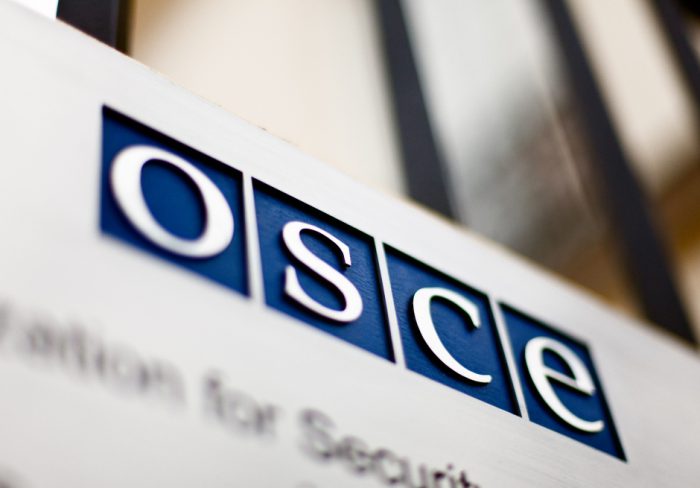“The media landscape comprises numerous broadcast and print outlets, most of which are considered to be associated with the ruling political party,” said the Office of Democratic Institutions and Human Rights (OSCE/ODIHR) in a report published on May 16, also noting that analytical coverage may be limited due to self-censorship and pressure on journalists.
Turkey has been ruled by the Justice and Development Party (AKP) led by Turkish President Recep Tayyip for the last 16 years. Following an invitation to observe the June 24, 2018 early presidential and parliamentary elections and in accordance with its mandate, the OSCE/ODIHR undertook a Needs Assessment Mission (NAM) May 8-10. The purpose of the mission was to assess the pre-election environment and preparations for the forthcoming early elections.
“Contestants are allowed to campaign in the media on the principle of equality; however, a number of ODIHR NAM interlocutors stated that the majority of media outlets tend to limit coverage of contestants from certain parties. The OSCE Representative on Freedom of the Media has repeatedly called for the authorities bring the country’s media legislation in line with OSCE commitments on media freedom and condemned numerous prison sentences for journalists and police raids on media outlets,” said the report.
Reminding that coverage of electoral campaigns in broadcast media is regulated by the Law on Broadcasting, the Law on Basic Provisions and Supreme Board of Elections (SBE) regulations adopted for each election, the OSCE said, “According to the principles for broadcasting, media are to ensure accuracy, impartiality and objectivity of reporting.”
“The regulatory framework includes undue restrictions on freedom of expression that were deemed problematic by previous ODIHR assessments. The Constitution does not fully protect the right to freedom of expression by permitting undue restrictions, among others, to protect ‘the basic characteristics of the Republic and the indivisible integrity of the state with its territory and nation.’ Legislation and its implementation criminalize speech on certain matters of public importance,” the OSCE said in the report.
“In addition to paid political advertisements, contestants are granted free airtime on the public broadcaster, the Turkish Radio and Television Corporation (TRT), during the last seven days of the campaign, including in languages other than Turkish. Independent parliamentary candidates do not qualify for free airtime.”
“Compliance with media regulations is overseen by the Radio and Television Supreme Council (RTÜK) …” the OSCE said, adding: “Recent changes to the legislation mandated the RTSC to license and oversee the media content on all types of media, including online, which raised concerns among a number ODIHR NAM interlocutors. In addition, concerns were expressed about non-balanced media coverage, including by the TRT, and NAM interlocutors pointed to the annulled sanctioning powers of the SBE for private media for non-compliance with media regulations. Some ODIHR NAM interlocutors also pointed to restrictions in the level of analytical media coverage owing to self-censorship and pressure on journalists.”
Underlining the importance of deploying an ODIHR observation activity for the upcoming elections as a way to enhance confidence and to provide an external assessment of the electoral process, the OSCE report stated that “[many] ODIHR NAM interlocutors indicated the need to deploy a sufficient number of observers to follow the process countrywide, including on election day.”
The report also listed the main problems related the election process in Turkey: “These relate to recent legal amendments, including on election day procedures, the holding of elections under an ongoing state of emergency, media access and coverage, and the conduct of the campaign, in particular regarding possible pressure on voters and other stakeholders. The majority of previous ODIHR recommendations remain unaddressed. Given the issues raised by a number of stakeholders concerning election day, the conduct of proceedings at polling stations on election day would benefit from a more detailed assessment.”
Based on the findings the report recommended the deployment of an Election Observation Mission (EOM) for the June 24 early presidential and parliamentary elections and added: “In addition to a core team of experts, the ODIHR NAM recommends the secondment of 28 long-term observers from OSCE participating States to follow the electoral process countrywide, and 350 short-term observers to follow election day proceedings. In line with ODIHR’s standard methodology, the EOM would include a media monitoring element.”
(Stockholm Center for Freedom [SCF])



